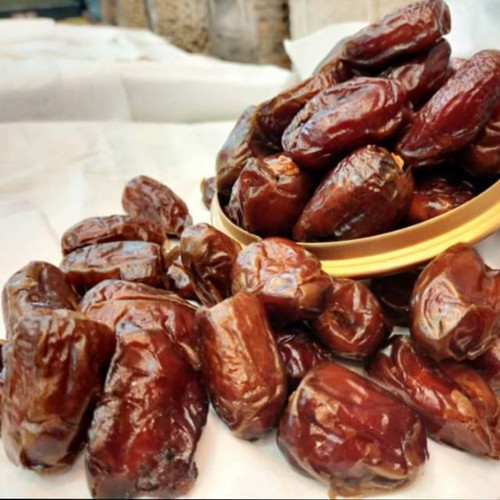Kurma Harga: Its Significance in Islam

Introduction
Understanding Kurma Harga
Kurma Harga, often referred to as “Divine Dates” or “Sacred Dates,” holds a special place in Islamic traditions. The term “Kurma Harga” originates from the Arabic words “kurma” meaning dates and “harga” meaning price. Together, it signifies the value and importance placed on dates within the Islamic context.
Symbolism and Spiritual Significance
In Islam, dates are considered a blessed fruit with deep spiritual symbolism. They are associated with various significant events and figures in Islamic history. The consumption of dates is encouraged during religious observances, such as Ramadan, as they are believed to provide sustenance and energy while fasting.
The Prophetic Tradition
The Prophet Muhammad is reported to have had a fondness for dates and would often eat them. His actions have influenced the perception of dates in Islam, establishing their significance and desirability. As a result, dates, including Kurma Harga, hold a special place in the hearts of Muslims.
The Symbol of Barakah
Dates are also seen as a symbol of barakah, which refers to divine blessings and abundance. Muslims believe that consuming dates brings blessings and increases the spiritual rewards of their actions. This perception further enhances the reverence for Kurma Harga and its importance in Islamic practices.
Cultural Perceptions and Practices
The cultural perceptions and practices surrounding Kurma Harga vary across different Muslim communities. In many cultures, offering dates as a gesture of hospitality and generosity is considered a noble act. Dates are often served to guests and shared during religious gatherings and festive occasions.
Traditional Customs and Celebrations
Dates, including Kurma Harga, play a significant role in various traditional customs and celebrations. They are used to mark special occasions such as weddings, births, and religious festivals. Dates are incorporated into traditional dishes and desserts, symbolizing joy, blessings, and unity within the community.
Economic and Commercial Aspects
The economic significance of Kurma Harga should not be overlooked. High-quality date varieties, like Kurma Harga, are a valuable agricultural commodity in many Muslim-majority regions. Date cultivation and trade contribute to local economies and are an important source of livelihood for farmers and traders.
Significant events and figures in Islamic history associated with dates:
In Islamic history, dates are associated with several significant events and figures. Here are a few examples:
1. The Miraculous Date Palm of Maryam (Mary)
According to Islamic tradition, when Maryam (Mary) gave birth to Prophet Isa (Jesus), she was instructed by Allah to shake the trunk of a date palm tree. As a result, ripe dates fell down, providing sustenance and nourishment for Maryam during childbirth. This event symbolizes the miraculous provisions provided by Allah.
2. The Date of the Battle of Badr
The Battle of Badr, fought in 624 CE, was a significant event in Islamic history. It was a decisive battle between the early Muslims of Madinah and the Quraysh tribe of Makkah. According to historical accounts, dates played a role in the battle when the Muslims, who were outnumbered, survived on limited provisions, including dates.
3. The Date of the Migration (Hijrah)
The migration of Prophet Muhammad and his followers from Makkah to Madinah in 622 CE, known as the Hijrah, is a crucial event in Islamic history. During their journey, the Prophet and his companion Abu Bakr took refuge in a cave called Thawr, where a pair of doves laid eggs and a date tree miraculously grew to conceal their presence from their pursuers.
4. The Date Market of Madinah
In Madinah, dates held significant economic importance during the time of the Prophet Muhammad. The city was renowned for its date orchards, and the Prophet encouraged trade and business activities involving dates. The date market of Madinah became a thriving center for commerce and played a vital role in the local economy.
5. The Date Palm in Paradise
In Islamic teachings, the date palm tree holds symbolic significance. It is believed that in Paradise, the righteous will be provided with shade and sustenance from the date palms. The Qur’an describes the gardens of Paradise as adorned with abundant fruits, including dates, as a symbol of the rewards awaiting the believers.
These are just a few examples of how dates are associated with significant events and figures in Islamic history. Dates hold both cultural and religious importance, and their historical connections continue to be cherished and celebrated by Muslims around the world.
Key Highlights:
– Kurma Harga is a term referring to the value and significance of dates in Islam.
– Dates hold deep spiritual symbolism in Islamic traditions.
– Dates, including Kurma Harga, are associated with significant events and figures in Islamic history.
– The consumption of dates is encouraged during religious observances like Ramadan.
– Kurma Harga symbolizes blessings and is seen as a source of divine abundance (barakah).
– Dates play a role in cultural practices, such as hospitality and traditional celebrations.
– Dates, including Kurma Harga, have economic importance in Muslim-majority regions.
– Understanding the meaning and perceptions of Kurma Harga helps appreciate its importance in Islamic traditions.
– Kurma Harga is a cherished fruit that represents richness, generosity, and spirituality in Islam.
Conclusion
Kurma Harga, the esteemed dates, holds a significant place in Islam, carrying both spiritual and cultural significance. It symbolizes the blessings, richness, and generosity associated with the Islamic faith. By understanding the meaning and perceptions surrounding Kurma Harga, one can appreciate its importance in Islamic traditions and embrace its symbolic value as a cherished fruit.